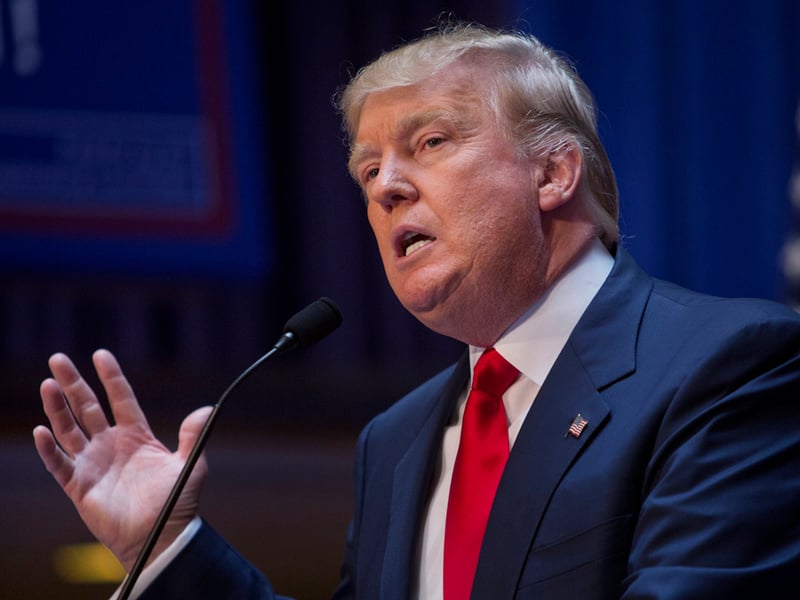Protests in the streets and emotional outbursts notwithstanding, the craziest presidential election in modern history has officially come and gone.
What we're left with, at least from a financial services perspective, is the immediate, near-, and longer-term ripple effects.
The fact that futures trading on the Dow Jones Industrial Average pushed the index
down more than 800 points on election night as it became clear that Donald Trump was likely to defeat Hillary Clinton says plenty about the bubble in which too many pundits and pollsters exist.
The markets, following the lead of history and logic, but not reality, banked on Ms. Clinton winning the election.
The market's rebound once it became clear that Mr. Trump was the winner included a full swing of more than 1,100 points by the Dow.
That immediate opportunity came and went too quickly for most financial advisers.
But, like the market's reaction to the Brexit vote earlier this year, which took all of 48 hours to fully recover, this shows that the markets are still grounded in fundamentals.
Bob Doll, chief equity strategist at Nuveen Asset Management, summed up such major geopolitical events as temporary distractions that financial advisers should try and ignore.
“This doesn't mean the stock market is straight up from here, but the noise is secondary and tertiary in importance to market fundamentals,” he said.
This brings us to the near- and longer-term impact on the election outcome, and this is where strategies can be applied based on both expectations and realities of the new administration.
The brief period between the election and inauguration day gets a lot of attention as policies and cabinets come together, but the
markets don't always reflect the mood of the electorate.
For example, the worst election-to-inauguration performance on record was the Dow's 19.94% drop after Democrat Barack Obama was elected in 2008.
The Dow's best post-election performance came after Republican Herbert Hoover was elected in 1928 at a time when the inauguration was held in March.
While it's too early to tell where the chips will ultimately fall under a Trump administration, the
markets are already placing bets on some of the most obvious sectors.
Investors jumped early and hard on the biotechnology sector, based largely on the reality that
Ms. Clinton would not be able to apply her promised pressure on pricing.
The iShares Nasdaq Biotechnology ETF (IBB), which is down 15.6% from the start of the year, gained 8.9% the day after the election on seven times the normal daily trading volume.
The S&P 500 Index, by comparison, is up 7.8% this year, and gained 1.1% the day following the election.
It is a similar story across the biotech category.
The SPDR S&P Biotech ETF (XBI), is down 8.9% this year, but gained 10.4% the day after the election.
The Vanguard Health Care ETF (VHT), which is down 1.6% this year, gained 3.5% the day after the election.
The financial and energy sectors are also expected to benefit from a Trump administration that could promote energy production and relax some banking regulations.
Those are seen as longer-term plays, while many of the more defensive sectors like utilities and real estate are expected to be out of favor.
The SPDR S&P Bank ETF (KBE), which is up 10.1% this year, jumped 5.2% on the election results.
The iShares US Oil & Gas Exploration & Production ETF (IEO), which is up 14.7% this year, gained 3.2% the day after the election.
But immediate market reactions aside, the longer-term outlook for these sectors depends heavily on the confidence in the direction and abilities of a Trump administration.
“You would expect the defensive sectors to be out of favor,” said Todd Rosenbluth, director of mutual fund and ETF research at CFRA.
“But the flipside is the uncertainty and unknowns of what a Trump presidency would mean,” he added.
In that case, defensive is your friend, and you'll want to be nuzzling up to something like Vanguard REIT Index Fund ETF Shares (VNQ), which is up 2.3% this year, but fell 1.5% the day after the election.
Ditto for Utilities Sector SPDR Fund (XLU), which is up 12.1% this year, but lost 3.7% the day after the election.
“The more defensive sectors are going to look like recession trades,” said Paul Schatz, president of Heritage Capital Management.
“Donald Trump has some very pro-growth policies that should finally kick start the economy,” he added.
Place your bets, and we shall see.







